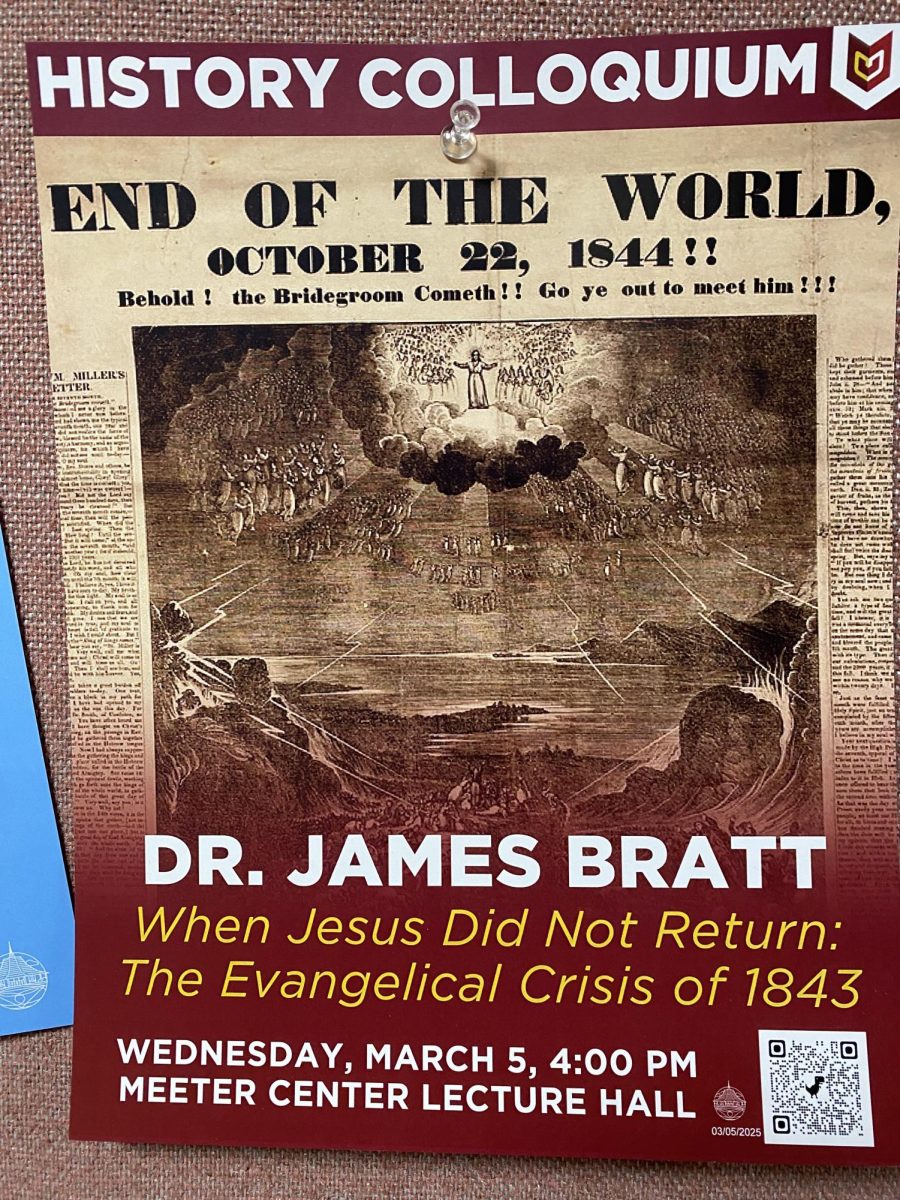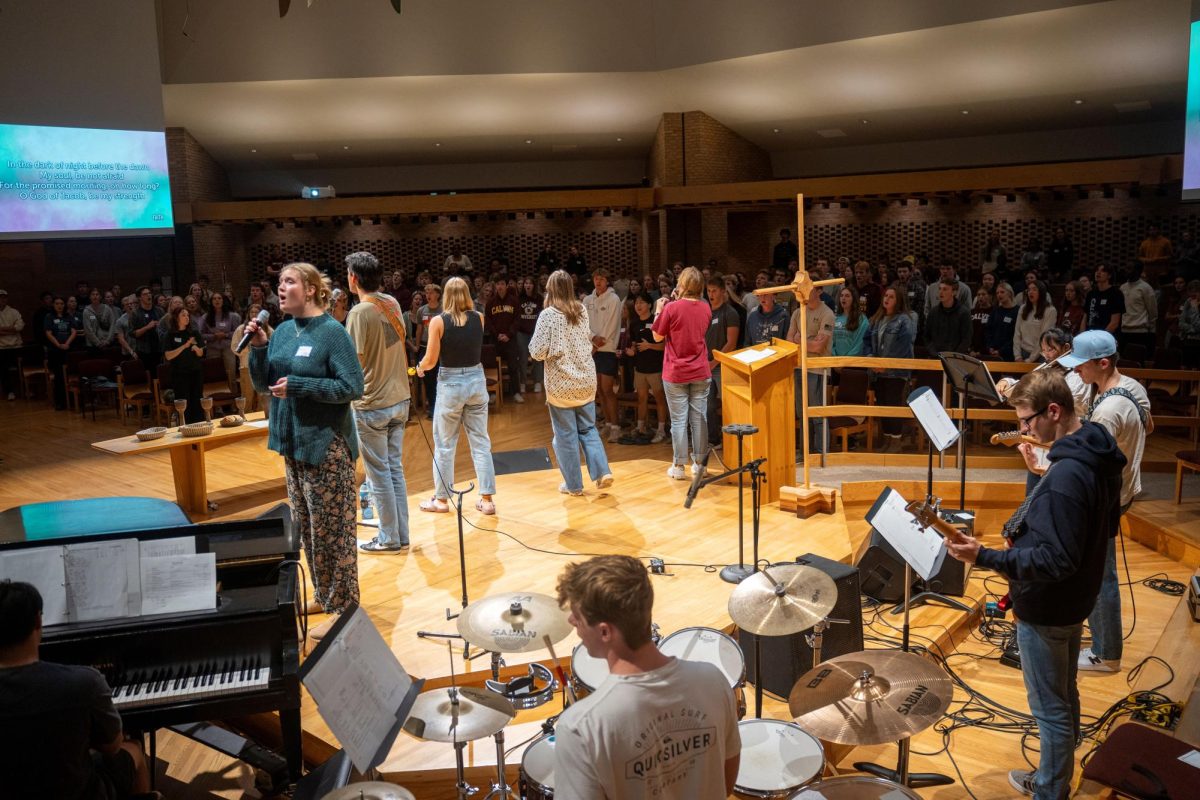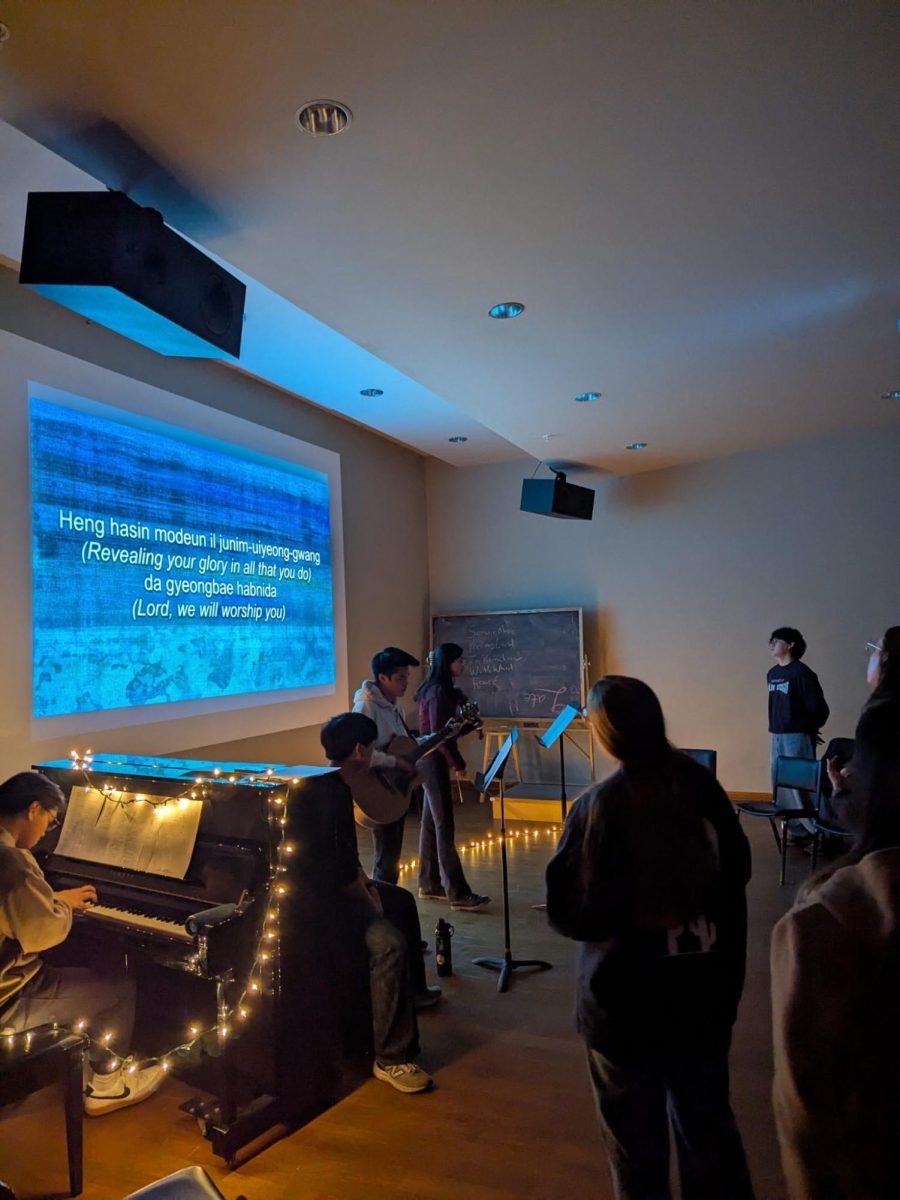If a stranger walked into your church today, how would he fill in the blank: this house is called a house of ______? Jesus preached that his house should be a house of prayer, but is prayer the word that a stranger would use to describe our churches?
Dr. John Witvliet, director of the Calvin Institute of Christian Worship and a professor at Calvin College, opened Friday’s plenary address, entitled ‘Strengthening Gospel-Shaped Prayers,’ with this poignant question.
The talk, which focused on intercessory prayer for other countries and peoples, included international and national speakers associated with the Calvin Institute for Christian Worship. The speakers pleaded with their listeners to pray often for the worldwide church.
“We need you to be steadfast in prayer. This is just as essential in ministry as us getting on a plane and flying there,” said Anne Zaki, who lives in Cairo, Egypt and works with the Calvin Institute for Christian Worship.
“Prayer is shaping people and changing God’s mind,” said Eric Sarwar, ordained Presbyterian pastor from Pakistan. Because the symposium theme this year comes from Exodus, Sarwar based his request on a passage in Exodus 32 where the Lord changed his mind because of Moses’ prayers.
The speakers stressed the necessity to lead informed public intercessory prayers, which requires the church to be knowledgeable about the struggles and persecution of the worldwide church.
“Never read the newspaper in the same way. Read it as an act of prayer,” said Mark Charles, a resource development specialist for Indigenous worship at the Calvin Institute.
Charles expressed concern that the church cannot be united when we do not know the needs of brothers and sisters in other cultures. Often, Charles warned, we base our church community on our common similarities rather than our common faith.
“We have removed the need for Christ in our church because our similarities unite us,” Charles said. If we shift focus from “I, me” to “we, us,” as Sarwar encourages, our prayers can
instead reach across the world and the Holy Spirit can bring unity across cultures.
Seminars throughout the symposium informed attendees of both the joys and trials of Christians in Ireland, Egypt, Pakistan, Argentina, El Salvador, South Africa, Philippines, Singapore and Mexico so that congregations would know how to best pray in response to the call given in 1 Timothy 2:1-2.
Jesus’ command to “love your enemies and pray for those who persecute you,” is different in the context of each of these countries. In reference to a recent tragedy, Sarwar explained that in Pakistan your enemy may not just be trying to kill you, but trying to burn your entire town. Yet Sarwar asked listeners to remember the persecutors in prayer alongside the persecuted.
“This gives a way to stretch my church’s prayers,” said Mary Sytsma, a worship symposium attendee and elder at Wheaton Reformed Church. “We will be stretched to pray for the enemies — the persecutors — of the church in Pakistan.”
Along with her plea for steadfast prayer for Egypt, the Middle East and worldwide, Zaki gave her listeners five specific requests for her country: pray for the past, for the future, for people in authority, for powerless people and for the quick return of the Lord.
She said when the church focuses prayer on these five areas, it will invest more in being both informed about worldwide events and caring more deeply about them, thus uniting the worldwide church.
Witvliet said by doing all these things we can expand the specificity and scope of public prayer to strengthen congregations and serve the world. The needs worldwide are overwhelming, Witvliet said, but prayer reminds the church that God is able.
“What we pray for reveals and shapes the kinds of things we perceive God is actively doing in the world,” Dr. Witvliet said. “[It] is a theological barometer … an indication of what we think God can do.”







